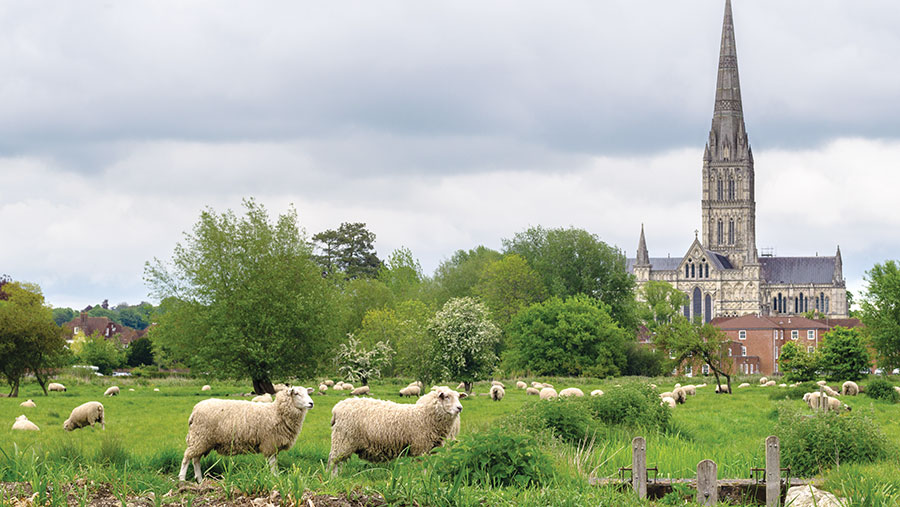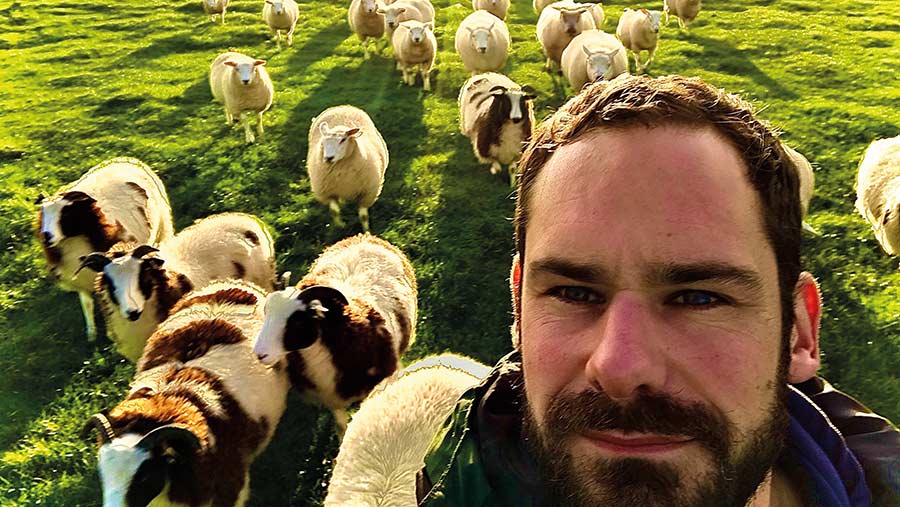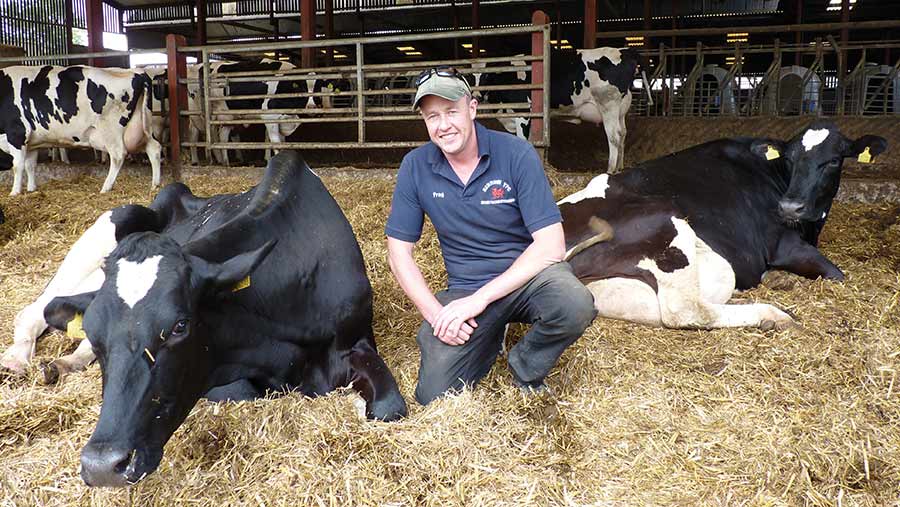How to foster good relations with new rural neighbours
 © Juan Jos/Adobe Stock
© Juan Jos/Adobe Stock The coronavirus pandemic has triggered an exodus of urban dwellers into rural areas as more people seek green space to enjoy working from home.
This raises the possibility of conflict in the countryside between farmers producing food and people settling into a different way of life.
Disagreements and misunderstandings can easily happen, but good communication and a little proactive work by the farmer can go a long way to help maintain a positive relationship with non-farming neighbours, and even create new allies to champion British agriculture.
See also: Flindt on Friday: ‘Lost’ rights of way may lead up garden path
Journalist and farmer’s daughter Anna Jones, author of Divide: The Relationship Crisis Between Town and Country, says more people value UK food production since the pandemic, but there is still work to be done.
“In lockdown, we saw people not respecting the countryside and doing stupid things, and I think that comes from a lack of education and understanding,” she says.
“We know that people who might move into a farming community from outside have a duty to at least try to understand and educate themselves a little bit about what happens in a farming year, but I think, equal to that, farmers need to get to know the people who have moved into their area.”
Ms Jones says this curiosity and empathy from the farmer will help to foster better relations between the two groups. “Complaints usually come from an emotional place and if you can understand what is driving that emotional reaction, you’re probably going to get on a lot better.”
A matter of perception
A survey of 15,000 farmers in England and Wales revealed that issues with the public are seen as a significant cause of stress.
- 35% of farmers said public access was a problem affecting their wellbeing
- 30% of farmers said they did not feel valued by the public
Source: The Big Farming Survey, Royal Agricultural Benevolent Institution, October 2021
Breaking down barriers
This approach could also help nip any potential disputes in the bud and stop them being blown out of proportion, says Mark Tufnell, president of the Country Land and Business Association, which represents about 28,000 landowners, farmers and rural businesses across England and Wales.
“Try to arrange a face-to-face meeting to discuss the matter generally before consulting lawyers. Try to understand your neighbours’ point of view and give them an opportunity to explain it,” he advises.
A lack of public understanding about agriculture and little awareness of the demands farmers face at different times of the year can often be the spark for a disagreement.
But education is a powerful tool, says Annabel Shackleton, manager of Leaf Open Farm Sunday (OFS), the initiative that sees farmers opening their gates each year so people can learn about how their food is produced.
“Even people who live in rural areas, unless they actually meet a farmer, they are just missing out on all that information. As far as neighbours are concerned, it is about breaking down those barriers and giving people the opportunity to learn.”
Ms Shackleton says this can also be good for business, especially in support of planning applications.
“A lot of farmers are looking at diversifications, and if they have run an OFS event on their farm, they can demonstrate, when they are putting in their planning application, that they’ve had a positive visit from neighbours.”
Neighbours are likely to be more helpful if they have met you and know who you are, says Ms Shackleton.
For example, one livestock farmer in Dorset has benefited from his OFS event because locals are now more willing to be his eyes and ears.
“They’ve met the farmer and know who he is. He is not just a name at the end of the gate. They feel they can contact him if his sheep have escaped or are in trouble.”
Access issues
Taking a proactive approach on access issues can help farmers foster good relationships with people out enjoying the countryside, says Bernard Griffiths, policy officer at the Farmers’ Union of Wales.
“Local access groups have been set up to provide a forum for discussion about accessibility issues within the local area for people who live, work or visit,” he says.
“Farmers can volunteer to represent the sector on local access groups so that ramblers are aware of the challenges faced by people who make their livelihood in the countryside, and raise awareness of the Countryside Code.”
Ultimately, farmers are the greatest ambassadors for the countryside. Good communication and positive interaction with neighbours and rural residents will help raise the profile of the industry, says Ms Jones.
“I do think people are more up for effective and open communication than they were a few years ago. All parties, farmers and non-farmers, are starting to realise that very binary discussions and debates have not really achieved much.”
Case study: Improving public opinion
Buckinghamshire beef and arable farmer Richard Heady has taken a proactive approach to help improve the public’s opinion of farmers in his area.
His 405ha farm is south of Milton Keynes, on the urban fringe. Mr Heady says writing in his village newsletter, posting regular updates on social media, and trying to be more approachable have all led to a better feeling towards him and his colleagues.
For example, his public Facebook page has more than 5,000 followers and is a useful tool for Mr Heady to explain what is happening on the farm, from crop work to rearing calves. This has helped the public to better understand the pressures farmers face.

Richard Heady © Richard Heady
The farmer recently joined a Facebook group made up of people living in a new housing development next to some of his fields. He says there has been less trespassing by dog walkers in his wheat fields since he posted in the group, to explain what he was growing and why.
“I think if you just sit back, people only see speeding, noisy tractors and smelly muck,” he says.
“But you can spin your own story of working long, tough hours, rushing to get the wheat in so that it can be made into bread, and using the power of animal muck to cut down our manufactured fertiliser use and improve our carbon footprint.”
Mr Heady writes a monthly Farm Watch column for his village newsletter, the Stewkley Grapevine, which keeps local people up to date with life on the farm.
He says this has helped educate his neighbours about agriculture. “I’m very careful not to use jargon. You have to remember you are speaking to someone who doesn’t know much about farming, but you should also not be patronising.”
Case study: Dairy farmer wins over village
Dairy farmer Fraser Jones was faced with huge local opposition when he applied for permission to build a 1,000-cow unit in Leighton village, near Welshpool, Montgomeryshire, more than a decade ago.
Villagers were quick to confront him with their concerns about smell, noise and new buildings. But Mr Jones has forged strong relationships with people in Leighton since the unit finally opened in November 2019.

Fraser Jones © Just Farmers
He has done this through good communication and taking an active role in village life. “People like to know what is going on and that stops them making the wrong assumption,” he says. “Every decision we are taking on the farm is very much with the village in mind.
“I held a couple of village meetings, there was a lot of misunderstanding [at the planning stage]. People were telling me my sheds were going to be as high as the church spire.”
Mr Jones, who writes a regular farm update in the village newsletter, has created a vegetable garden and forest area on his land for the local primary school to use, and hosts farm tours, where people are invited to leave a donation that will go to the village council or church.
The farmer also built a path through his land that villagers use to avoid walking a dangerous stretch of road that has a nasty bend.
“The farm is here and the village is there. We’ve got to work together and I encourage anyone with issues to contact me,” he says.
“Now I don’t get any complaints from the village; I am very involved. I’ve had emails from people saying ‘we’re sorry we went against you’, because the unit is as I said it would be and we have solved any issues.”

